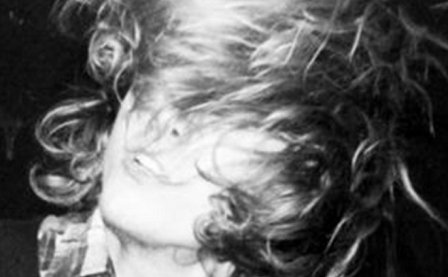Garage rock exists in a state of constant revival. Forty years from now, we may be 3D-printing shit directly from our minds, but based on our culture’s trajectory over the past half-century, it’s a safe wager we’ll still be listening to shaggy-fringed bastards with axes bestatic’d yelp over sloppy-edged drums. We can cure cancer or build a car that runs on water, but we’ll never shake the feeling that this town’s gotten too goddamned uptight for its own good. Yet there’s one defining element of garage rock (and punk, for that matter) that’s overtly threatened by our technological future: its development and resurgence via regional scenes. Even as we begin to migrate our musical existences into The Cloud, rock ‘n’ roll remains an artform of earthbound physical presence. The “garage” descriptor, after all, is a place and not a sound. Without this sense of locality, the music loses its meaning. Example: The Hives and The Vines are from Fagersta and Sydney, respectively, yet they are, for all intents and purposes, the same shitty mid-aughts band.
At first go-round, Goodbye Bread — the most recent bunch of songs by Ty Segall, SoCal-bred younger brother to the preternaturally fecund San Fran psych-garage scene — bears few marks of local flavor. On “You Make The Sun Fry,” Segall’s baritone crests and squirms over a thick, universally “rock” descending riff. The song’s lyrically-indistinct chorus falls into place with an ease that can be appreciated by the most untrained, Clear-Channeled ear. Its solo hits all expected peaks, finally sidling alongside the refrain to close out the track. It’s an able, even catholic (small “c”) pop song; it feels like, cleaned of some of its sonic smut, it could’ve been made anywhere in the world in any given post-60s decade.
Yet under further scrutiny, the song reveals an array of stylistic quirks that tie it to some of Segalls’s more visible friend-contemporaries. The vocals on Goodbye Bread, more noticeably warped on burlier tracks like “My Head Explodes,” clip and buzz, accentuating the throaty, amelodic qualities of Segall’s mutable voice like John Dwyer’s on Thee Oh Sees’ records. The change-jingling saunter of a tempo at which most of the album runs brings Segall in line with the often noisier onetime bandmates Sic Alps. The most notable uniting factor between these bands — The Fresh & Onlys, Sonny & The Sunsets, and others in their vicinity — is not a quantifiable one; it’s a loose, tape-deck physicality, a textural sense of place. Some songs even deal with locality lyrically: “California Commercial” sends up the continuing American fantasy of the West Coast as destination, while “Comfortable Home” questions a lover’s desire for a domestic living situation (“She says she wants to buy a couch/ I said why do we have to buy the couch?”), but it’s a nauseated warmth about his sound that really “places” it.
Ty Segall culls some some of his scene’s most appealing aspects and affixes them to unusually-written, melodically appealing songs; in essence, he’s an ideal ambassador for his Bay Area milieu. Improving with every subsequent release, he’s an ascendant non-luddite, non-backtracking garage figurehead for an age of increasing unreality, a mouthpiece of the sempiternal primal garage yelp.
More about: Ty Segall




